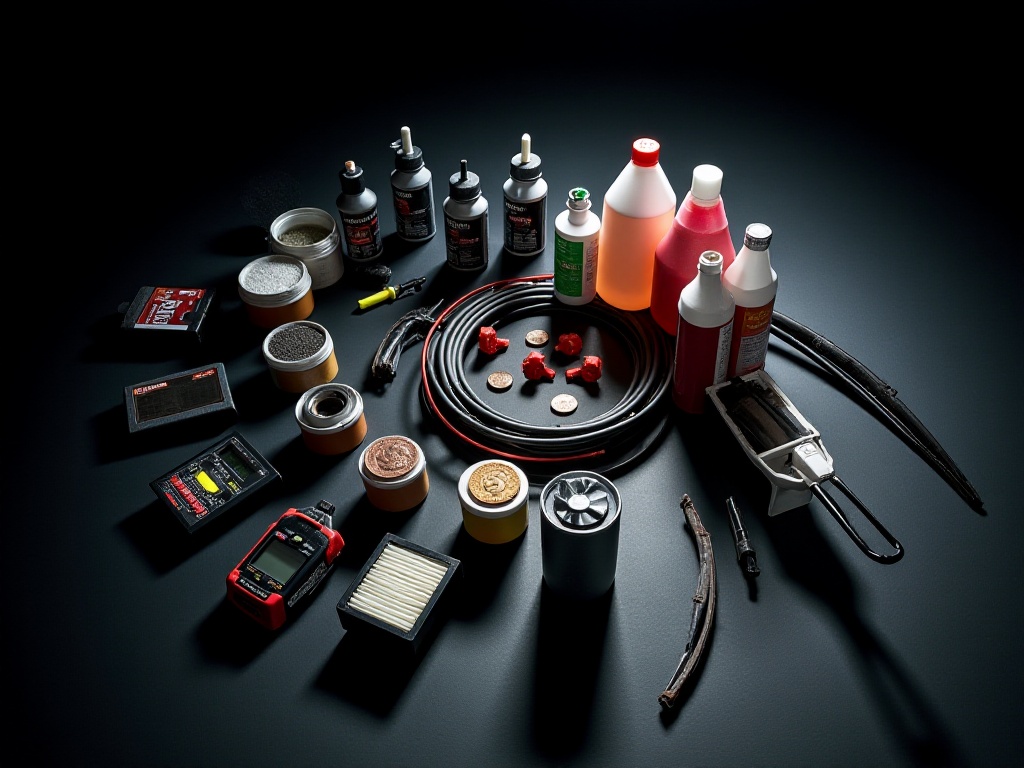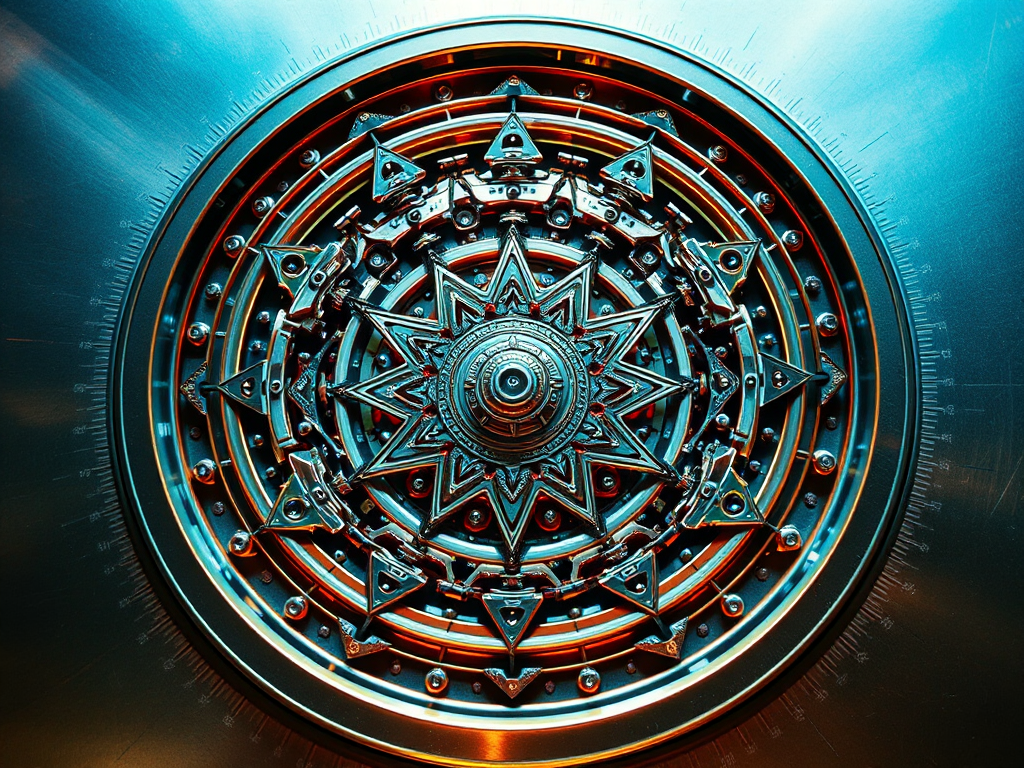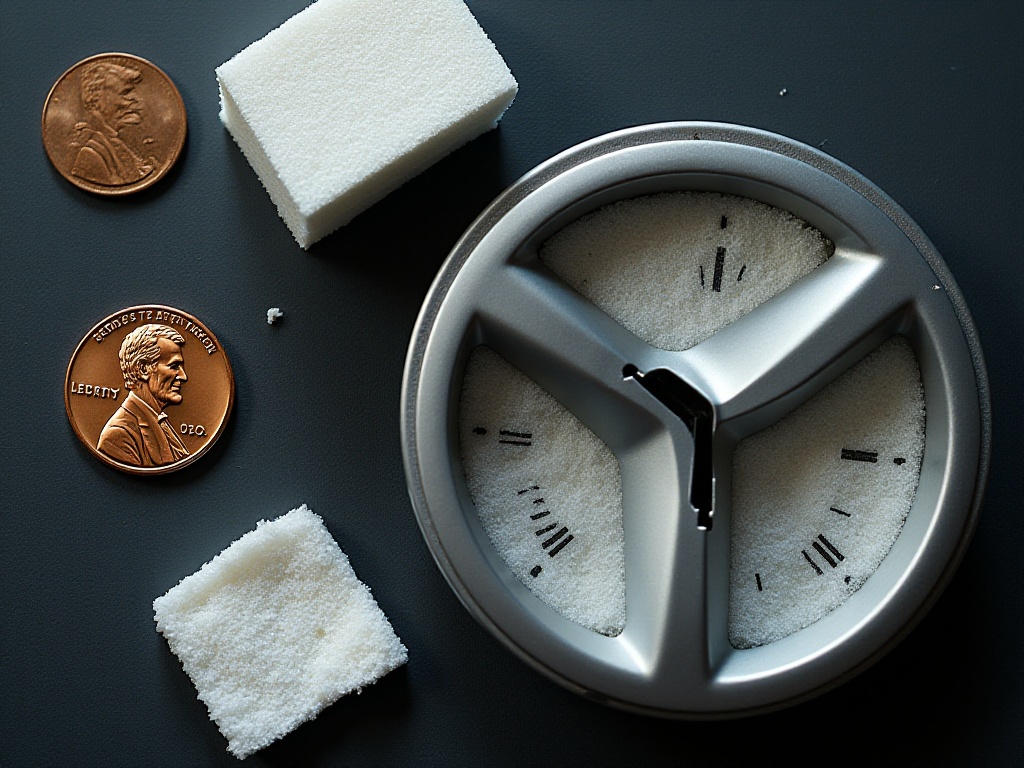Introduction
Recently while watching short videos, I noticed many young car owners starting to maintain their cars themselves. Honestly, this trend is fantastic! I remember when I first bought my car, I knew nothing and felt like I was being overcharged every time I went to the dealership for maintenance. Later, after learning some basic maintenance knowledge online from experts, I discovered that car maintenance isn't as difficult as imagined - the key is being attentive.
Just the other day, my cousin who bought a new car kept asking me about car maintenance experience. I figured instead of teaching just one person, I should write it down to share with more new car owners, so today I'll discuss all about vehicle maintenance with everyone.
Fluid Management
When it comes to car maintenance, managing various fluids is fundamental. Without exaggeration, these fluids are your car's lifeline. Let me first talk about engine oil.
Engine oil is like the blood of your engine, serving major functions: lubricating internal engine parts, removing heat, cleaning the engine interior, and preventing parts from rusting. Choosing the right oil is crucial - I recommend selecting the type recommended in your owner's manual. While mineral oil might be temptingly cheap, I suggest choosing semi-synthetic or fully synthetic oil. Though more expensive, it offers better protection and longer change intervals.
Regarding oil changes, many newcomers ask: how often should I change it? There's no standard answer - it depends on your actual situation. Generally, for city driving with frequent stops and starts, changing every 4,000-5,000 miles is recommended; if you frequently drive on highways, you can extend it to 6,000-7,000 miles. However, don't exceed 8,000 miles regardless.
Here's a tip: check the dipstick every time you fuel up. Pull it out, wipe it clean, reinsert it, then pull it out again to check the level and color. Fresh oil should be honey-colored - if it's dark or black, it means the oil is contaminated and needs changing.
Transmission fluid is also crucial, especially for automatic vehicles. I know many people neglect transmission fluid changes, thinking as long as the car moves, it's fine. This mindset is extremely dangerous! Degraded transmission fluid can cause rough shifting and potentially total transmission failure, which could cost tens of thousands. Follow your maintenance manual's requirements, typically changing every 40,000-60,000 miles.
Brake fluid is another crucial fluid. Its main function is transmitting braking force to ensure the brake system works properly. Brake fluid tends to absorb moisture from the air, which over time lowers its boiling point and affects braking performance. Even if you don't brake much, changing brake fluid every two years is recommended.
Power steering fluid might be unfamiliar to many, but it's vital for normal steering system operation. If you notice noise while turning or the steering wheel feels heavy, power steering fluid might be the issue. Check it every 50,000 miles, and change it if the fluid is dark or smells strange.
Coolant deserves special mention. It not only removes engine heat but also prevents cooling system rust. There are many types of coolant with different colors, but never mix them randomly. I recommend using the manufacturer's recommended type. Change it every 2-3 years, but regularly check the fluid level.
Windshield washer fluid might seem minor but plays an important role in driving safety. Cheap washer fluid can clog nozzles or even corrode paint. Choose branded washer fluid, using lower concentration in summer and higher concentration anti-freeze type in winter.
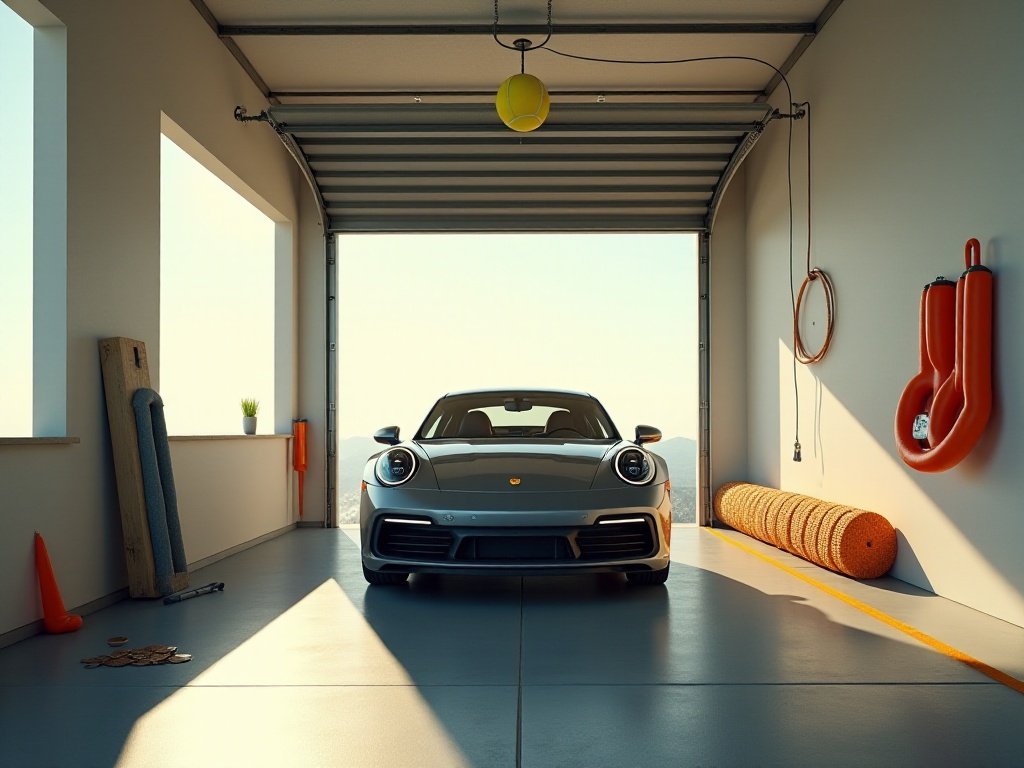
Tire Care
Tires are the only parts contacting the ground, and their condition directly affects driving safety. Many newcomers might not know that tires have a lifespan, typically 4-5 years. Even if the tread depth is sufficient, tires should be replaced after their service life as rubber deteriorates.
Regarding tread depth, besides using a coin to measure, tires have wear indicators. When the tire wears down to these markers, replacement is necessary. However, I suggest not waiting that long - consider replacement when tread depth falls below 3mm.
Tire pressure is often overlooked. Over-inflation causes excessive center wear, while under-inflation accelerates edge wear and increases fuel consumption. The correct approach is checking pressure when tires are cold (parked over 3 hours) according to the pressure values shown on the door pillar.
Many might not know that tires need regular balancing. If the steering wheel vibrates at high speeds, tire balance might be the issue. Recommend balancing every 20,000-30,000 miles - it's inexpensive but greatly improves safety and comfort.
Another often overlooked detail is tire rotation. Front and rear tires wear differently - regular rotation ensures more even wear and longer life. Generally recommended every 10,000 miles.
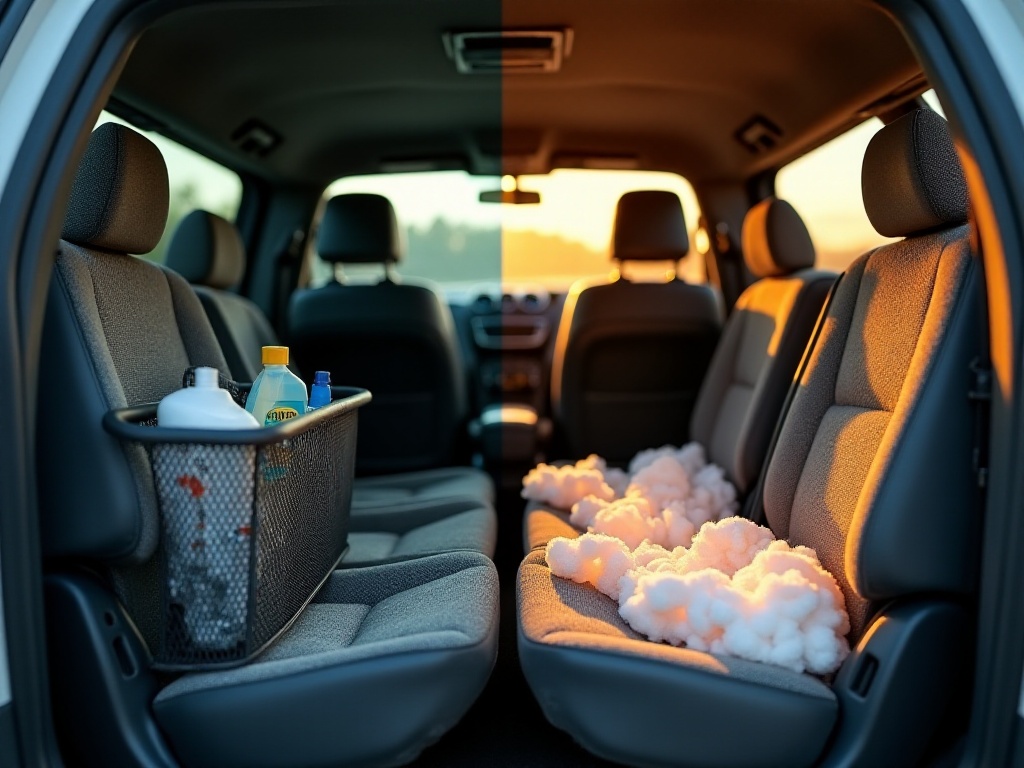
Cleaning Tips
Regarding cleaning, I have many practical tips to share. First about exterior washing - many think going to a car wash is sufficient, but doing it yourself achieves better results. I suggest first using a pressure washer to remove surface dust, then using professional car shampoo and wash mitt, followed by another rinse. Remember to dry with dedicated car towels, not regular towels which might scratch the paint.
Paint maintenance is important. I wax my car every three months to protect the paint and maintain shine. Using a clay bar to clean the surface before waxing gives better results.
Interior cleaning requires attention too. Use professional interior cleaners for seats and carpets, followed by vacuuming. Leather seats need regular leather conditioner to prevent cracking.
Don't neglect AC system cleaning. Recommend sanitizing the AC system annually using professional AC cleaner. When cleaning, set AC to maximum, spray cleaner into the intake, and let it circulate. This eliminates odors and kills bacteria.
Engine bay cleaning is important but requires proper method. Best to clean after engine cools, using dedicated engine bay cleaner, avoiding electrical components. Dry thoroughly after cleaning to prevent rust.

Preventive Maintenance
Preventive maintenance saves money and worry. First about the brake system - besides regularly checking brake pad thickness, brake disc condition needs attention. If you feel vibration or noise when braking, the discs might be warped or uneven, requiring immediate inspection.
Spark plug replacement is often overlooked. Deteriorating spark plugs cause unstable engine operation and increased fuel consumption. Generally recommend replacement every 40,000-50,000 miles. Choose manufacturer-recommended types, don't buy cheap inferior products.
Belt system inspection is crucial. Timing belt failure can cause severe engine damage, so timely replacement is essential. Generally every 60,000-80,000 miles or 5 years, depending on model. Alternator and AC belts should be replaced if cracking or wear appears.
Chassis component inspection is often overlooked. Check shock absorbers, struts, tie rods for leaks or looseness during each service. Repair problems promptly to maintain driving safety.
Battery maintenance has several tips. Besides regularly cleaning terminal oxidation, avoid frequent discharge. If parking long-term, start weekly for 15-20 minutes to maintain battery activity.

Money-Saving Tips
For saving money, I have many practical tips. First, replace some wear items yourself, like wiper blades, air filters, cabin filters. These are simple operations learnable from video tutorials.
Engine and air filter replacement isn't difficult either. But use OEM parts or reliable brand products. Cheap inferior filters might cause premature engine damage.
Minor paint scratches can be fixed yourself. Auto stores have touch-up pens - perfectly fine for self-repair if color matches. But leave large scratches to professionals.
Regularly observe your car's condition, address abnormalities promptly. Check immediately for engine noise, steering wheel vibration, brake issues. Early detection prevents small problems becoming big ones.
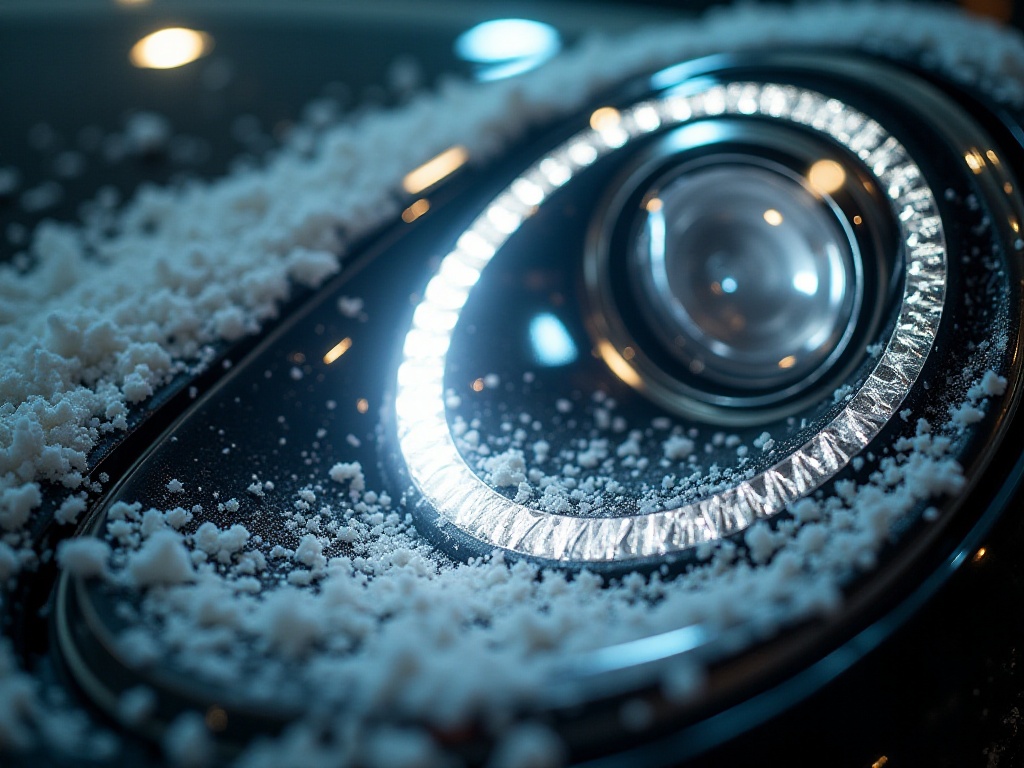
Concluding Reminder
Car maintenance requires time and effort, but mastering these techniques helps your car last longer. I suggest keeping a notebook to record maintenance items and timing for better tracking of maintenance intervals.
Remember, cars are like people, needing careful attention. Regular maintenance might be troublesome, but compared to major repairs' cost and hassle, it's nothing. Hope these experiences help more car owners - let's be smart car maintenance experts together!




